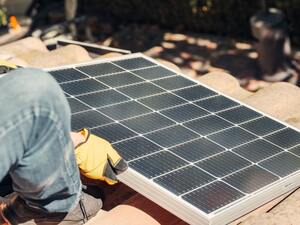-
 Find in Members
Find in Members Find in Videos
Find in Videos Find in Channels
Find in Channels
This website uses cookies to ensure you get the best experience on our website.
To learn more about our privacy policy Click herePrivacy Preference
- Tags - #sunny boy inverter
-
- Last updated November 28, 2022 0 comments, 235 views, 0 likes
More from Alex Carey
More in Politics
Related Blogs
How to Add Solar Power to an Outbuilding
Body
Whether it’s a detached garage, workshop, shed, or even a small guesthouse, adding an outbuilding on your property can be a great addition to your space. But that outbuilding is only going to be moderately useful if it doesn’t have any power. Connecting your outbuilding to the same grid power your home uses can be quite difficult, and requires running underground power lines. Often, an easier option is to provide the building with its own solar power that’s not connected to the grid at all. Keep reading to find out more.
Calculate Power Usage
The first thing you’ll need to do before you can install solar power on your outbuilding is calculate how much power this building will actually use. Obviously, a guesthouse is going to require more electricity than a shed that only needs an outlet and an overhead light. So, take some time to carefully consider all of the electricity-using devices that will be in this building, and determine what their power needs are. Performing this calculation correctly is essential to ensuring that your solar power system is large enough to meet your needs.
If you undersize your solar power system, you will frequently run out of electricity for your outbuilding, and you’ll be left in the dark.
Determine If You Need AC Power
All homes need AC power; however, not all outbuildings do. For example, if you’re looking to just power some lights in your gardening shed, so you can see as you put away tools, you can get away with just a DC solar power system, so long as you ensure that you’re using lights that require DC power. These systems are much smaller and cheaper, as they don’t require an inverter.
However, if you need AC power for an outlet or other devices, you will need to connect an inverter, and these systems will cost quite a bit more. The solar panels in a solar power system only generate DC electricity, and an inverter is required to turn that DC power into AC electricity that most power tools, electronics, and other electrical systems require.










Comments